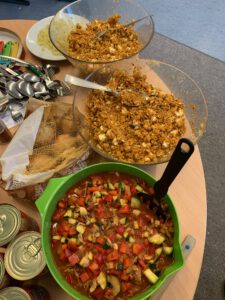„How can we change our diet in a climate-friendly way?“ – A total of 12 groups of students from various district schools in Hamburg are addressing this question as part of the „Climate Fasting“ project run by aubiko e.V.. The project is supported by the Hamburg Climate Protection Foundation.

November 9, 2020
On Monday, 09.11.2020 we were again guests at the Max Brauer School. This time we spent two days together with class 8a.
Some of the students already knew a little about climate-friendly nutrition, which made our introduction to the topic easier. Terms such as „regional“ and „seasonal“ were quickly applied correctly by the participants. In addition, we collected facts about climate change, consumer behavior and transport routes for our food. This turned out to be an exciting exchange due to the lively nature of the class.
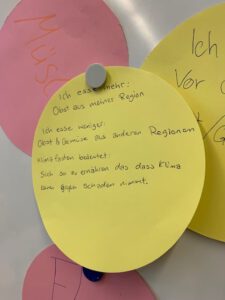
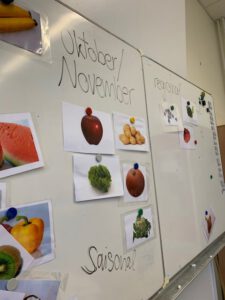
Our main goal was to create awareness for more environmentally friendly nutrition on the part of the young people and to reflect with them on possibilities for more sustainable consumption. Through various playful approaches such as „fruit salad“, „plate tool“ and „CO2 memory“, the participants learned how to determine the CO2 emissions of food and which foods are climate-damaging or climate-friendly. At the end of an exciting first day, the participants decided together which environmentally friendly dish could be cooked together on the next project day. Finally, all participants drew up their personal „action plan“ on how they can eat more climate-friendly food in the future and which products they should avoid.
December 4, 2020
On Friday, December 4, we caught up on the long-awaited second project day, on which we wanted to put the theoretical knowledge we had gained into practice – shopping together and then cooking was on the agenda! For this purpose, we divided the students into two groups. The two groups created a similar shopping list and then each made a trip to a different supermarket nearby. The task on site was to check the respective foods with regard to their origin or sustainability. The participants quickly developed a sensitivity for climate-friendly and -harmful products and bought sustainable food.
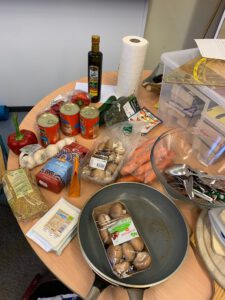
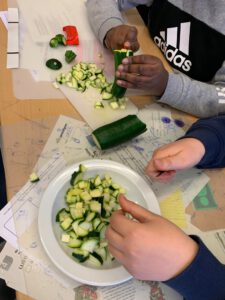
Back at school, we compared the products of each supermarket and discussed the differences in countries of origin, prices or availability of ingredients. After an exciting discussion, we transformed the classroom into a kitchen and started preparing our climate-friendly lunch. The students processed the different ingredients with a lot of commitment and after a short time they conjured up a bulgur pan with vegetables – Yummy!
At the end of the project, we ate our successful meal together and ended the day with a small feedback session.
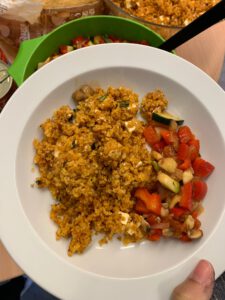
We from aubiko e.V. would like to thank the organizers from the school and all the students for their commitment! We are looking forward to working with you again and hope that you had as much fun as we did!
Your team from aubiko e.V.
